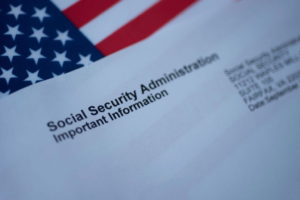Details of USCIS’ Implementation of H-1B Electronic Registration Still Up in the Air
Nov 8, 2019
Dallas, TX (Law Firm Newswire) November 8, 2019 – U.S. Citizenship and Immigration Services (USCIS) has failed to clear up uncertainty surrounding the implementation of its H1-B electronic registration system. In a letter issued on September 30, 2019, the agency said it is continuing to test the new tool ahead of plans to implement it during the fiscal year 2021 cap season.
USCIS Acting Director Kenneth Cuccinelli said the tool was retested earlier in September following a redesign in response to feedback from an initial round of testing. He stated that the agency plans to “conduct further outreach and training” before implementing the new H-1B electronic registration system to enable the public to become familiar with it. In addition, the Department of Homeland Security (DHS) will publish a notice in the Federal Register to announce its implementation in advance of the forthcoming cap season.
“The idea of H-1B registration and conduct of a lottery first instead of preparing a complete H-1B filing only to have that case not chosen in the H-1B lottery, is attractive. It would save employers money, and provide timely predictability of whether that selected case’s H-1B petition is to be prepared and filed with USCIS,” commented Stewart Rabinowitz of the Dallas and Frisco law firm of Rabinowitz & Rabinowitz, P.C. “But how USCIS sets up and runs such a system is crucial to its success, and employers who seek H-1B employees need a say as stakeholders in developing a workable registration system. USCIS’ most recent letter about still testing the system leaves employers nervous as to how well-vetted the system will be, how soon employers will know its details, the timelines within which it is to function, and when employers will have input to the final decision.”
The latest USCIS letter was issued in response to a group of 14 business, higher education organizations, and a national immigration lawyers’ association raising concerns about the agency’s lack of clarity surrounding the H-1B electronic registration process. In a letter dated August 16, 2019, the group sought confirmation regarding the use of USCIS’ electronic registration system for the FY2021 H-1B cap filing season and requested the consideration of stakeholder feedback prior to implementing the new tool in order to “ensure a smooth transition” and reduce “the risk of disruptions.”
The letter’s signatories, who are among the nation’s biggest H-1B employers, highlighted the necessity of having adequate time in which to familiarize themselves with the new tool well in advance of any mandatory registration period. The letter pointed out that the testing and vetting of the electronic registration process did not include input from prospective H-1B employers, who are preparing for the forthcoming filing season that commences on April 1, 2020.
The letter cautioned that “transitioning to a new electronic system has the potential for technical glitches and operational disruptions.” As front-end users of the tool, H-1B employers are best positioned to identify technical issues that may not be immediately obvious during the development phase.
By Appointment Only
Three Galleria Tower
13155 Noel Road, Suite 900
Dallas, TX 75240
http://www.rabinowitzrabinowitz.com
- USCIS Issues Proposed New H-1B Registration Rules
U.S. Citizenship and Immigration Services (USCIS) has proposed a rule change that requires each H-1B petitioning employer to pay a $10 filing fee for every electronic registration submitted to the agency for each H-1B worker who is to be counted in the H-1B cap selection. H-1B petitioning employers whose foreign national beneficiary qualifies for the … - U.S. and Guatemala Sign Agreement Regarding Refugees Amidst Uncertain Legality
President Donald Trump announced on July 26, 2019, that the United States and Guatemala have signed a controversial “safe third country” agreement, a key part of the president’s plan for reducing the influx of migrants at the U.S. border. Under the deal, asylum seekers from Central American nations — such as El Salvador and Honduras … - CRS Examines Federal Law Regarding Border Admissions and Exclusions of Foreign Nationals
The Congressional Research Service (CRS) released an updated Legal Sidebar document on June 10, 2019, that outlines the immigration laws governing the admissions and exclusions of foreign nationals at the U.S. border. The report sought to clarify the detention and removal processes for foreign nationals, including procedures for asylum seekers, along with examining the treatment …




